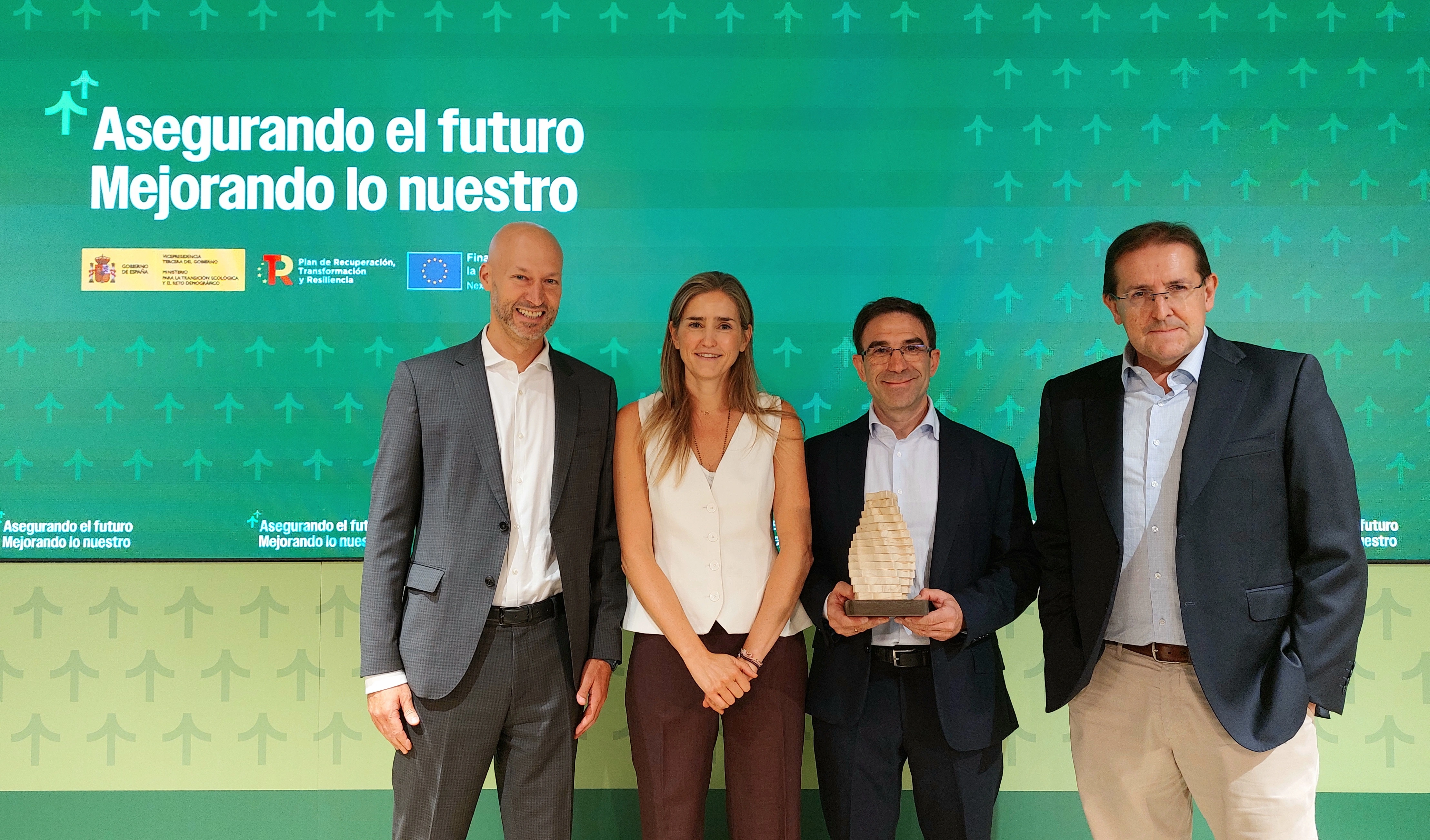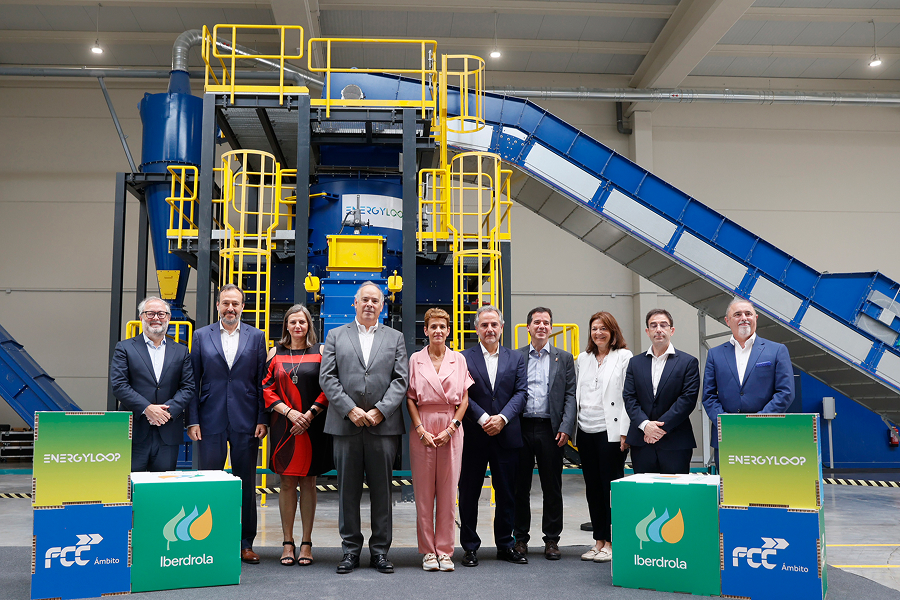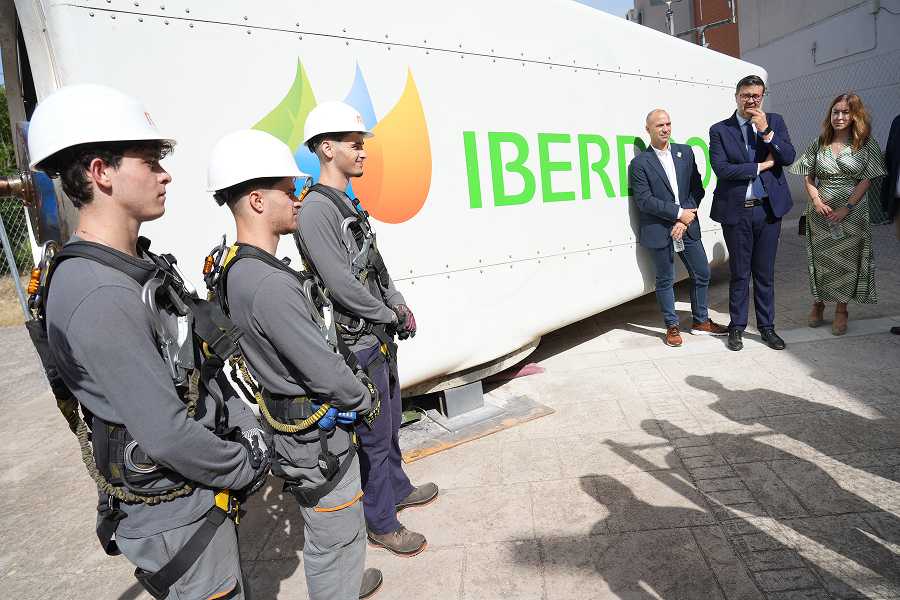REPOWERING OF WIND FARMS IN SPAIN
Wind repowering, the key to renewing Spain's wind farms
Wind power is one of Iberdrola Spain's key renewable energy commitments and the country's main source of indigenous energy. Despite their importance, wind farms have a limited useful life of around twenty years. In view of this, wind repowering is the ideal solution to improve their performance and ensure their durability.

Spain currently has 1,345 wind farms, comprising 22,000 wind turbines and 66,000 blades, in more than a thousand municipalities. However, the passage of time and the continued use of the installations are causing them to become obsolete. In fact, according to WindEurope, a large number of the wind turbines in theEuropean wind farms will reach the end of their useful life in the next 10-15 years. In view of this, wind repowering aims to maximise energy production and increase the efficiency of wind farms.
Such is the importance of wind repowering in Spain that the Ministry for Ecological Transition and the Demographic Challenge has promoted the Circular Repowering programme. This plan aims to replace 1,205 old wind turbines with 167 latest-generation turbines with €147.8 million in aid. In this way, the new technologies will be capable of almost doubling the energy generated by the old wind farms, increasing their installed power by 8%.
What is the repowering of wind farms?
The repowering of wind farms refers to the improvement, modernisation or upgrading of existing wind farms to extend their useful life. This process fully or partially replaces obsolete wind turbines in wind farms with more advanced and powerful turbines.
With the implementation of the new wind turbines, the number of turbines in a wind farm is reduced by a quarter while increasing its output.
According to data from the Spanish Wind Energy Association (AEE), of the more than 27,000 MW of wind power in Spain, around 16,000 MW are more than 15 years old and this figure is expected to rise to 20,000 MW by 2025. With Spain ranking fifth in the world in terms of installed wind power capacity and second in Europe, it is crucial to opt for an alternative that ensures the durability of the blades.
The situation of Iberdrola Spain's wind farms
Innovations in wind power technology
Wind technology has undergone remarkable advances in recent decades, playing a crucial role in the transition to more sustainable and cleaner energy sources. These developments have improved efficiency, reduced costs and expanded the viability of wind energy as a key source of electricity.
Several of the main advances in turbine technology are the creation of floating turbines, improvements in aerodynamic efficiency or the incorporation of artificial intelligence that predicts maintenance and adapts its operation according to wind conditions in real time. On the other hand, there are innovations in wind energy storage systems. In this sense, it is essential to mention lithium-ion batteries or the use of surplus energy to pump water with pumping solutions.
At Iberdrola España, we work hard to find new technological solutions to ensure renewable and clean energy production. We offer a wide range of solutions to complement and guarantee the current supply, such as energy storage, the use of batteries, the commitment to electricity grids, and the use of renewable energy sources or the recycling of wind turbines. By reusing most wind turbine blades, they can not only be reused in other wind farms or countries, but can also be converted into architectural elements and structures, such as bridges or bicycle racks.
All in all, all these developments not only make wind energy more cost-competitive, but also position it as a key player in the sustainable energy matrix of the future.
Benefits of repowering wind farms in Spain
The repowering of wind farms has a number of advantages that can justify the investment and effort required to carry out this process. Below we highlight some of the key benefits of repowering a wind farm:
-
Increased energy production capacity: Installing more efficient turbines and upgrading certain components can significantly increase the amount of energy generated by the wind farm.
-
Efficiency improvement and cost reduction: Repowering not only increases the efficiency of the wind farm, but also reduces operating and maintenance costs.
-
Progress towards decarbonisation: Repowering wind installations offers a clear opportunity to modernise the wind farm and contribute to decarbonisation targets at lower cost.
-
Better integration into the grid: The replacement of turbines with state-of-the-art units ensures better integration compared to older technologies.
-
Preservation of employment: Unlike full decommissioning, repowering preserves employment and benefits for the local community in which the wind farm is located.
Reasons for repowering a wind far
The repowering of a wind farm, which involves upgrading and modernising turbines after some years of operation, can be motivated by a variety of reasons. Some of these reasons include:
-
Turbine obsolescence: As wind turbines age, their efficiency decreases compared to newer models, limiting the energy output of the wind farm. In addition, they may reach the end of their useful life, requiring a decision on their replacement.
-
Growing demand for renewable energy: Increasing demand for renewable energy can drive repowering as a strategy to increase production capacity and meet growing market demand.
-
Technology improvement: The constant improvement in wind turbine technology provides the opportunity to consider repowering to implement advances, thereby improving the efficiency and production capacity of the wind farm.
-
Regulatory changes: Changes in government regulations and energy policies can affect the viability of an existing wind farm, which could prompt repowering to adapt to new regulatory requirements.
Iberdrola Success Stories in Spain
A t the forefront of energy transformation, Iberdrola Spain has consolidated its position as a leader in wind repowering, standing out for its innovative projects that optimise clean energy generation. Through a strategic vision and an unwavering commitment to sustainability, we are implementing projects in Spain that not only boost the efficiency of its wind farms, but also set new standards in the industry.
EnergyLOOP, a company promoted by Iberdrola, through its PERSEO programme, and FCC Ámbito, a subsidiary of FCC Servicios Medio Ambiente, will build its innovative wind turbine blade recycling plant in Spain. This is a pioneering facility in the recycling of wind turbine blades.
In addition, Iberdrola España plans to implement several wind repowering initiatives at four wind farms located in Galicia and Castilla-La Mancha. This action will reduce the number of wind turbines installed in both communities by 200 and increase the energy production of the facilities by an average of 30%.
Thus, in Galicia, the Muras wind farm will go from having 74 wind turbines of 660 kW to 11 wind turbines of 4.3 MW. The 18.5 MW Serra da Panda wind farm will reduce the number of wind turbines to 19, from the current 24.
In Castilla la Mancha, the wind farms that will benefit from wind repowering are located in Albacete. Firstly, Molar de Molinar, with 49.5 MW, will have 11 4.5 MW wind turbines, 64 fewer than the current 75 660 kW turbines. Finally, the Isabela wind farm will go from 64 750 kW wind turbines to 11 wind turbines.
Iberdrola Success Stories in Spain








